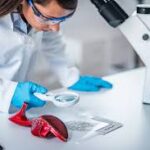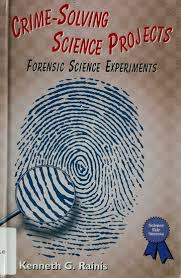Forensic science plays a pivotal role in crime solving in the United States, providing crucial evidence and analysis that contribute to the investigation and prosecution of criminal cases. This essay explores the significance of forensic science in crime solving, its various applications, advancements in technology, challenges faced, and its impact on the criminal justice system.
Importance of Forensic Science in Crime Solving
Forensic science involves the application of scientific principles and techniques to analyze physical evidence found at crime scenes. Its importance in crime solving cannot be overstated, as it provides objective, reliable, and admissible evidence that can corroborate or refute witness testimony, identify suspects, and establish timelines of events.
Applications of Forensic Science
Forensic science encompasses a wide range of disciplines, each contributing unique expertise to criminal investigations:
DNA Analysis:
DNA profiling is one of the most powerful tools in forensic science, allowing for the identification of individuals based on their unique genetic profiles. DNA evidence can link suspects to crime scenes, exonerate innocent individuals, and establish familial relationships.
Ballistics Analysis:
Firearms and toolmark examination involves the analysis of bullets, casings, and other ballistic evidence to determine the type of weapon used, its caliber, and potentially match it to a specific firearm.
Fingerprint Analysis:
Fingerprint examination remains a cornerstone of forensic identification, as fingerprints are unique to each individual and can be recovered from various surfaces at crime scenes.
Toxicology:
Toxicological analysis involves the detection and quantification of drugs, alcohol, and other substances in biological samples, providing valuable information about a victim’s cause of death or a suspect’s impairment.
Digital Forensics:
With the rise of digital technology, digital forensics has become increasingly important in investigating cybercrimes, retrieving evidence from electronic devices, analyzing digital communications, and tracing online activities.

Technological Advancements
Advancements in technology have revolutionized forensic science, enabling more precise analysis, faster processing times, and the discovery of new types of evidence:
Next-Generation Sequencing (NGS):
NGS technology has revolutionized DNA analysis, allowing for faster and more comprehensive sequencing of DNA samples, even from degraded or mixed samples.
3D Crime Scene Reconstruction:
Advanced imaging techniques, such as 3D laser scanning and photogrammetry, enable forensic investigators to create detailed three-dimensional models of crime scenes, enhancing the documentation and analysis of evidence.
Machine Learning and Artificial Intelligence (AI):
AI algorithms are being developed to assist in the analysis of forensic evidence, such as fingerprint matching, handwriting analysis, and facial recognition, improving accuracy and efficiency.
Challenges in Forensic Science
Despite its importance, forensic science faces several challenges that can impact its reliability and effectiveness in crime solving:
Backlogs and Resource Constraints:
Many forensic laboratories face backlogs of unprocessed evidence due to limited resources, staffing shortages, and high caseloads, leading to delays in case resolution.
Quality Assurance and Standardization:
Ensuring the reliability and validity of forensic analysis requires adherence to rigorous quality assurance protocols and standardization of procedures across laboratories.
Emerging Technologies and Training Needs:
Keeping pace with rapidly evolving technologies requires ongoing training and education for forensic practitioners, as well as investments in research and development.

Impact on the Criminal Justice System
Forensic science has had a profound impact on the criminal justice system, influencing case outcomes, investigative techniques, and legal procedures:
Exonerations and Wrongful Convictions:
DNA evidence has played a crucial role in exonerating innocent individuals who were wrongfully convicted, highlighting the potential for miscarriages of justice and the importance of accurate forensic analysis.
Cold Case Investigations:
Advances in forensic science have led to breakthroughs in cold case investigations, allowing law enforcement agencies to revisit unsolved cases and reanalyze evidence using modern techniques.
Enhanced Prosecution and Defense Strategies:
Forensic evidence can strengthen both prosecution and defense arguments in criminal trials, providing corroborating or conflicting evidence that can sway juries and influence case outcomes.
Forensic Psychology
Forensic psychology is a specialized field that applies psychological principles to legal issues and criminal investigations. It plays a crucial role in understanding the behavior of suspects, victims, and witnesses, as well as assessing their competency to stand trial and providing expert testimony in court.
Criminal Profiling:
Forensic psychologists may assist law enforcement agencies in creating profiles of offenders based on behavioral characteristics, motivations, and patterns of offending behavior. Profiling can help narrow down suspects and prioritize investigative leads in complex cases.
Victim Advocacy:
Forensic psychologists also work with victims of crime to assess the psychological impact of traumatic experiences, provide support and counseling, and help prepare them for participation in legal proceedings, such as giving testimony in court.
Legal Challenges and Admissibility of Forensic Evidence
While forensic evidence can be highly probative in criminal cases, its admissibility in court is subject to legal scrutiny and challenges. Several factors may impact the admissibility of forensic evidence:
Reliability and Validity:
Courts may consider the reliability and validity of forensic techniques and methodologies in determining the admissibility of evidence. Forensic experts may be required to demonstrate that their methods have been scientifically validated and are generally accepted within the relevant scientific community.
Chain of Custody:
Ensuring the integrity of forensic evidence requires maintaining a chain of custody, documenting the handling and storage of evidence from the time it is collected at the crime scene to its presentation in court. Any breaks in the chain of custody may raise doubts about the authenticity and reliability of the evidence.
Expert Testimony:
Forensic experts may be called upon to testify in court regarding their findings and opinions. Courts may assess the qualifications, experience, and credibility of expert witnesses in determining the weight to be given to their testimony.

Interdisciplinary Collaboration
Effective crime solving often requires interdisciplinary collaboration among forensic scientists, law enforcement agencies, legal professionals, and other stakeholders:
Crime Scene Investigation:
Close collaboration between forensic scientists and law enforcement officers is essential in properly documenting and collecting physical evidence at crime scenes. Forensic scientists may provide guidance on evidence preservation and collection techniques to ensure its integrity.
Case Review and Consultation:
Forensic experts may consult with legal teams to review case evidence, provide expert opinions, and assist in formulating trial strategies. Collaboration between forensic scientists and attorneys can enhance the understanding and presentation of complex scientific evidence in court.
Research and Innovation:
Collaborative research efforts between forensic laboratories, academic institutions, and industry partners drive innovation in forensic science, leading to the development of new techniques, technologies, and best practices for crime solving.
Conclusion
Forensic science plays a critical role in crime solving in the USA, providing objective analysis and evidence that contribute to the investigation and resolution of criminal cases. However, challenges related to the reliability, admissibility, and interpretation of forensic evidence underscore the need for rigorous standards, interdisciplinary collaboration, and ongoing research and innovation in the field. By addressing these challenges and fostering collaboration among forensic practitioners, law enforcement agencies, and legal professionals, the USA can strengthen its capacity to solve crimes and administer justice effectively.



